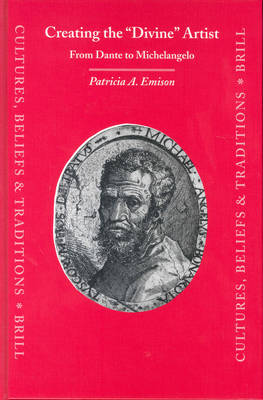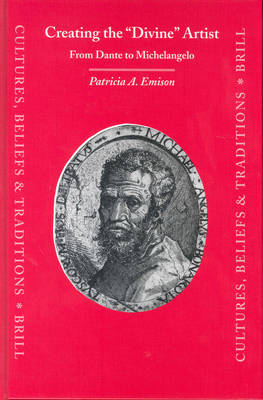
- Afhalen na 1 uur in een winkel met voorraad
- Gratis thuislevering in België vanaf € 30
- Ruim aanbod met 7 miljoen producten
- Afhalen na 1 uur in een winkel met voorraad
- Gratis thuislevering in België vanaf € 30
- Ruim aanbod met 7 miljoen producten
Zoeken
Omschrijving
Turning a skeptical eye on the idea that Renaissance artists were widely believed to be as utterly admirable as Vasari claimed, this book re-opens the question of why artists were praised and by whom, and specifically why the language of divinity was invoked, a practice the ancients did not license. The epithet ''divino'' is examined in the context of claims to liberal arts status and to analogy with poets, musicians, and other ''uomini famossi.'' The reputations of Michelangelo and Brunelleschi are compared not only with each other but with those of Dante and Ariosto, of Aretino and of the ubiquitous beloved of the sonnet tradition. Nineteenth-century reformulations of the idea of Renaissance artistic divinity are treated in the epilogue, and twentieth-century treatments of the idea of artistic "ingegno" in an appendix.
Specificaties
Betrokkenen
- Auteur(s):
- Uitgeverij:
Inhoud
- Aantal bladzijden:
- 454
- Taal:
- Engels
- Reeks:
- Reeksnummer:
- nr. 19
Eigenschappen
- Productcode (EAN):
- 9789004137097
- Verschijningsdatum:
- 26/03/2004
- Uitvoering:
- Hardcover
- Formaat:
- Genaaid
- Afmetingen:
- 163 mm x 244 mm
- Gewicht:
- 975 g

Alleen bij Standaard Boekhandel
+ 473 punten op je klantenkaart van Standaard Boekhandel
Beoordelingen
We publiceren alleen reviews die voldoen aan de voorwaarden voor reviews. Bekijk onze voorwaarden voor reviews.








